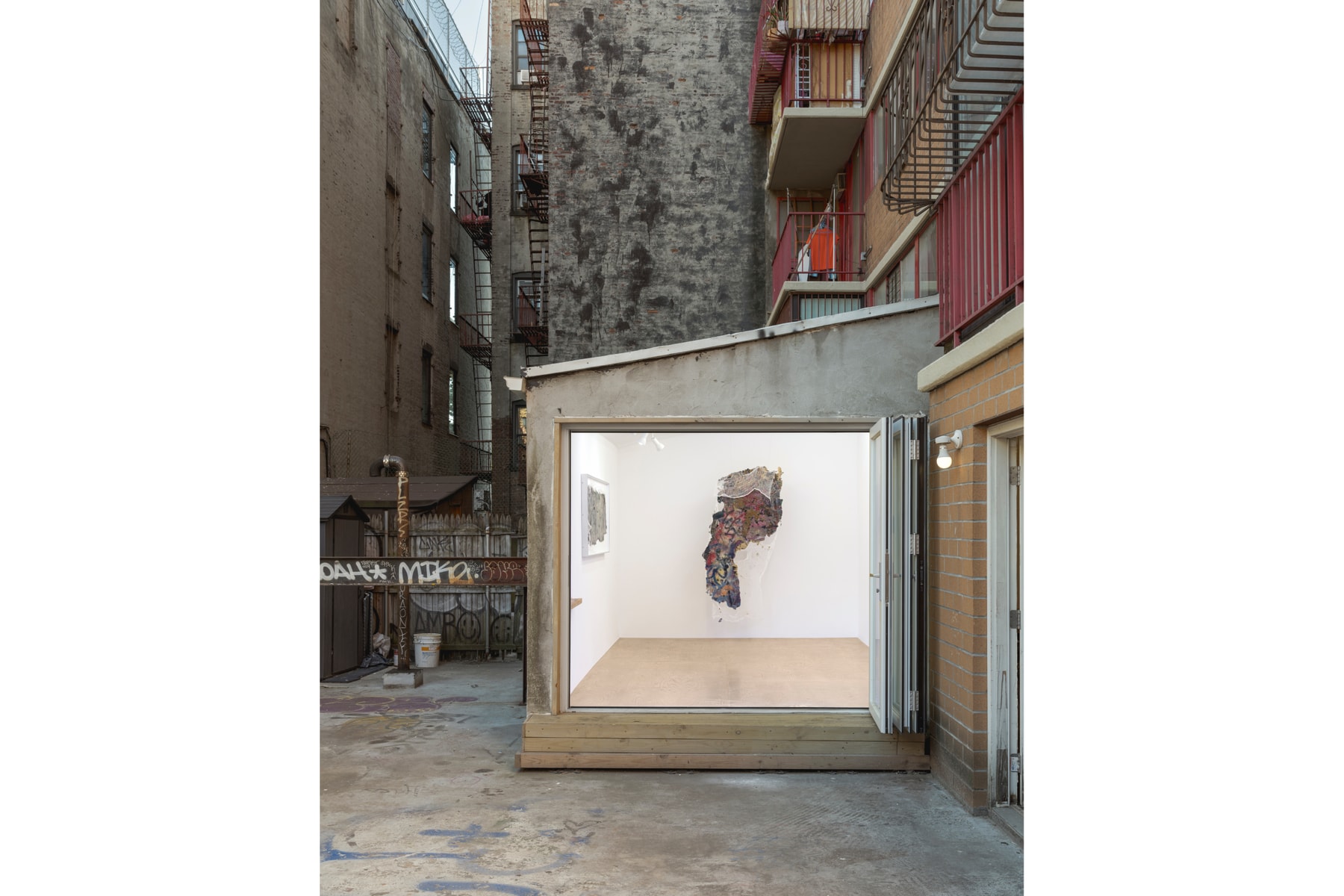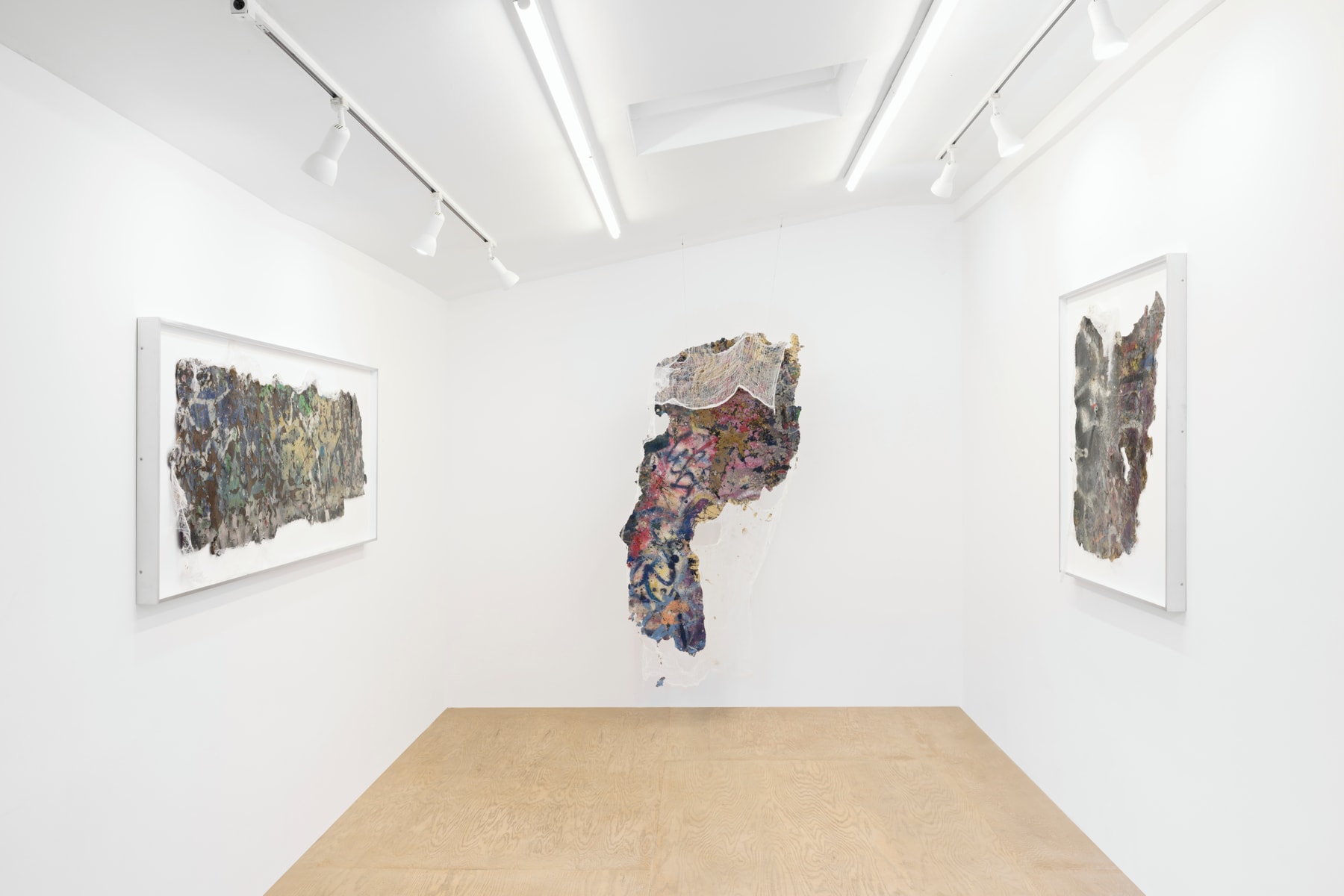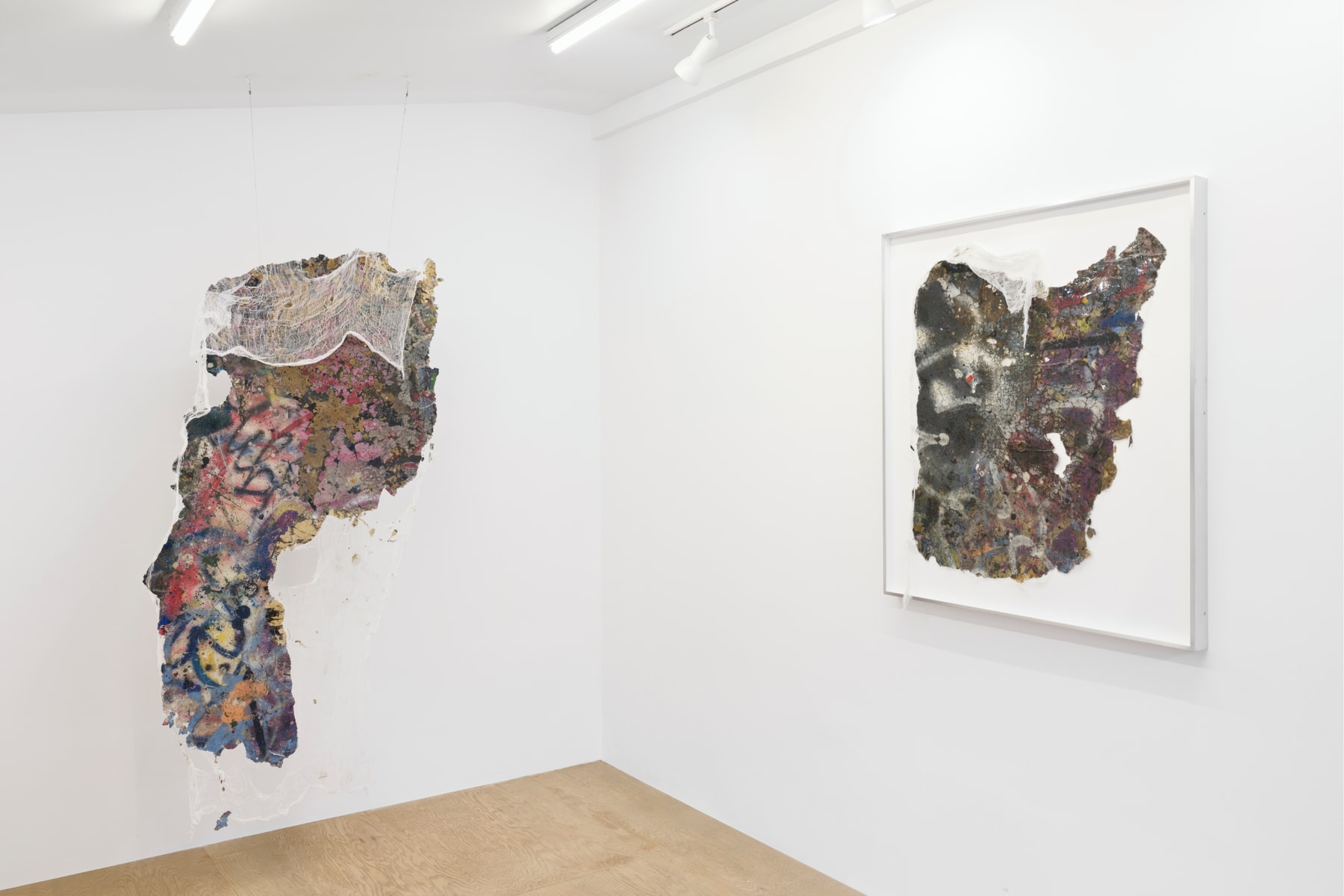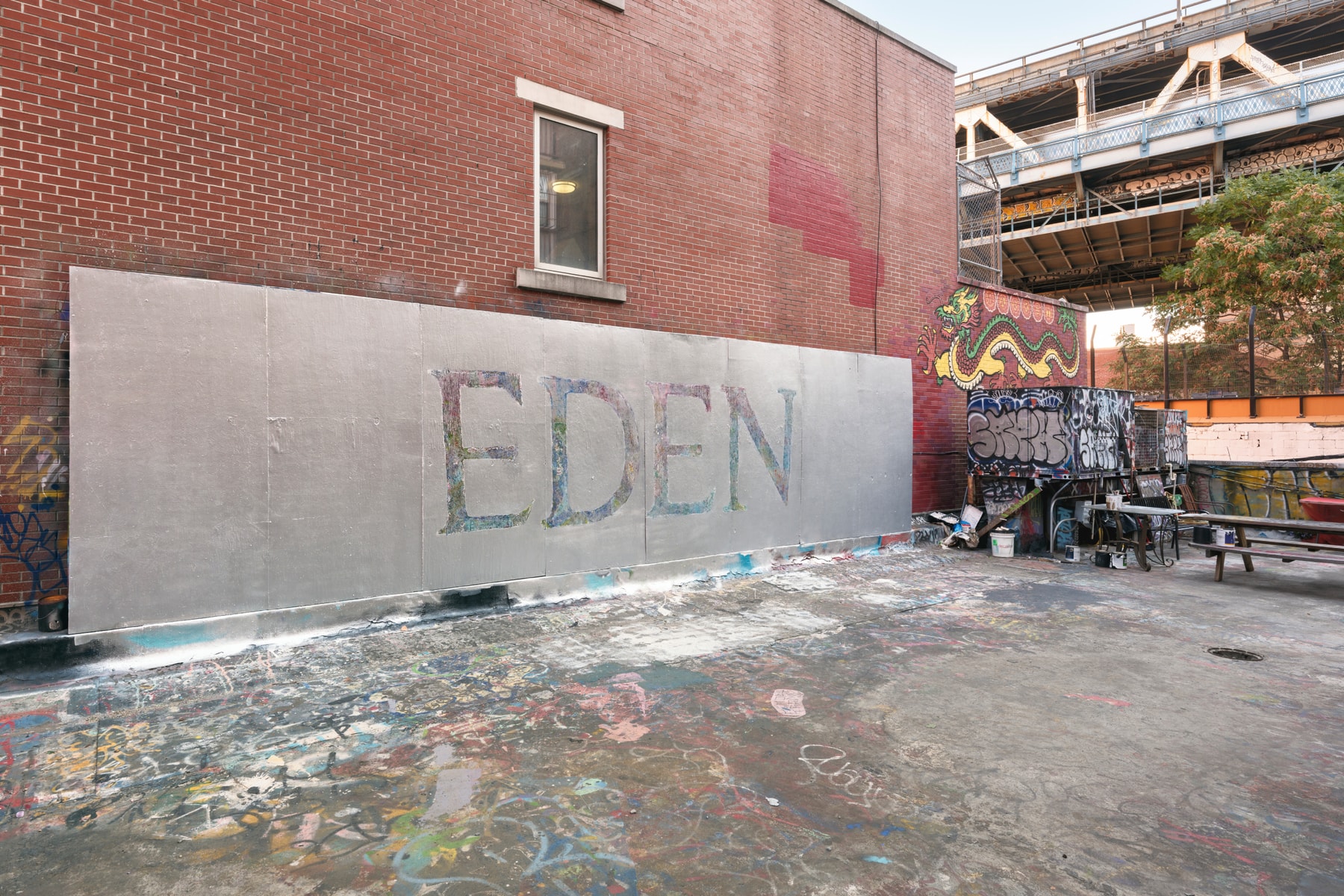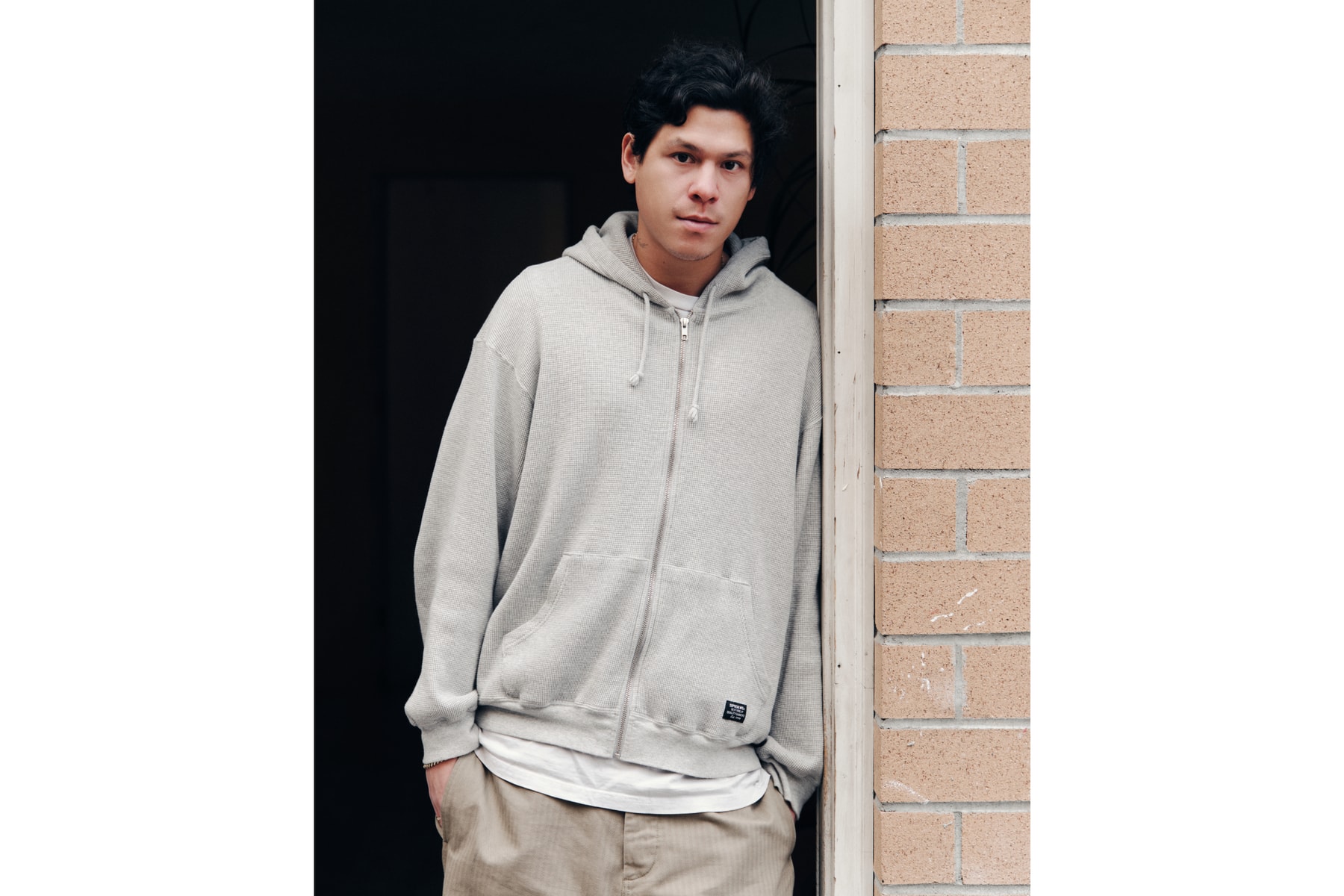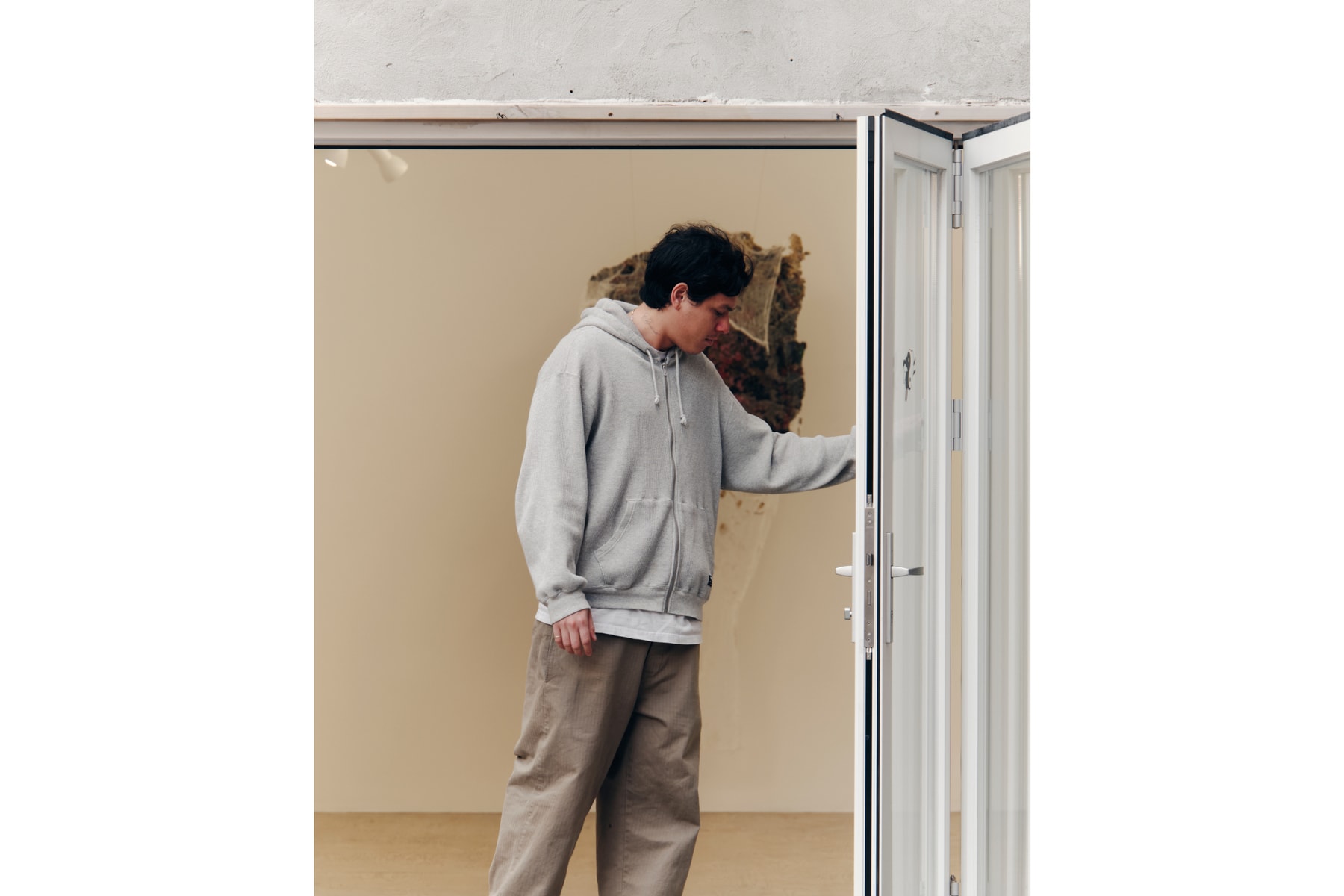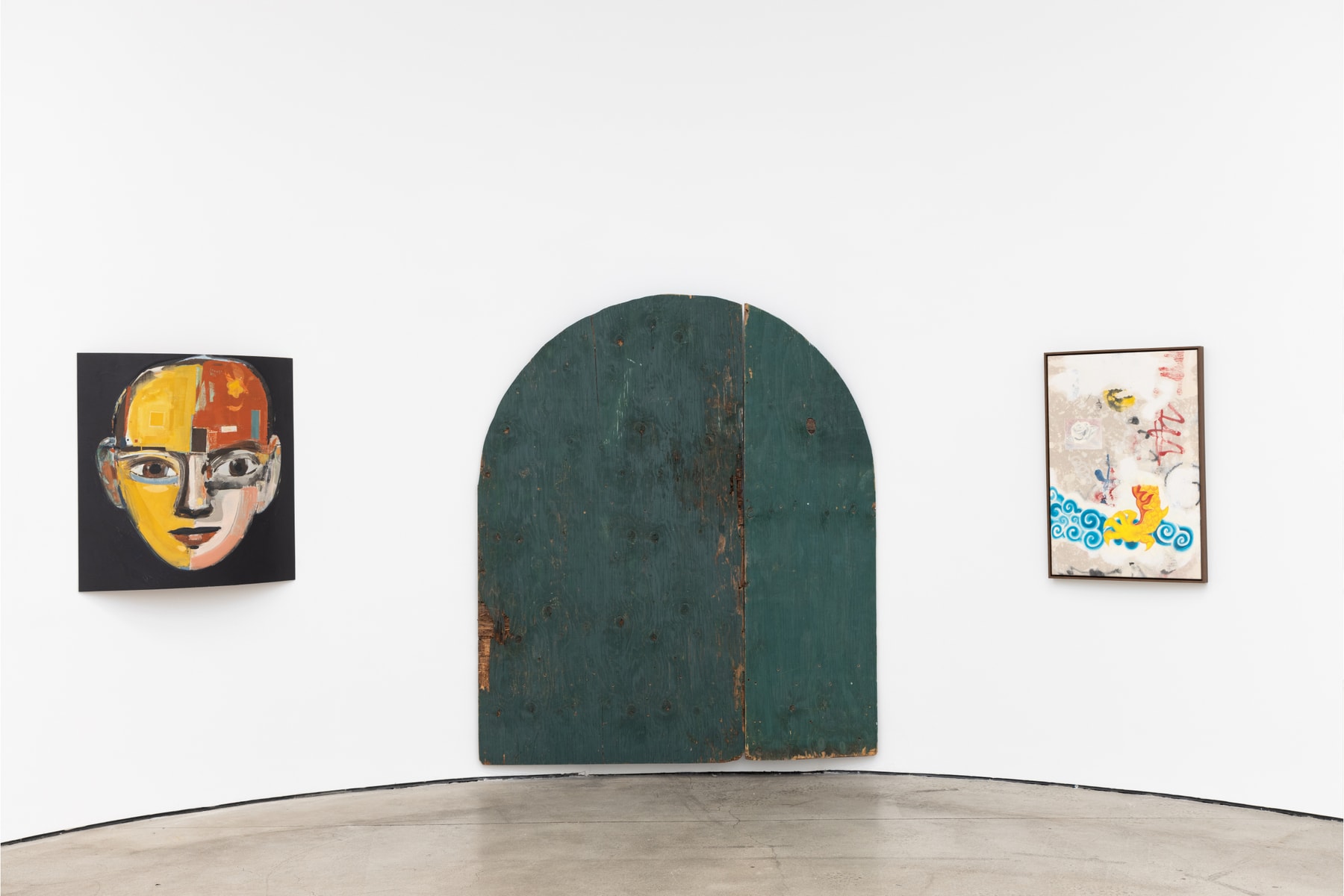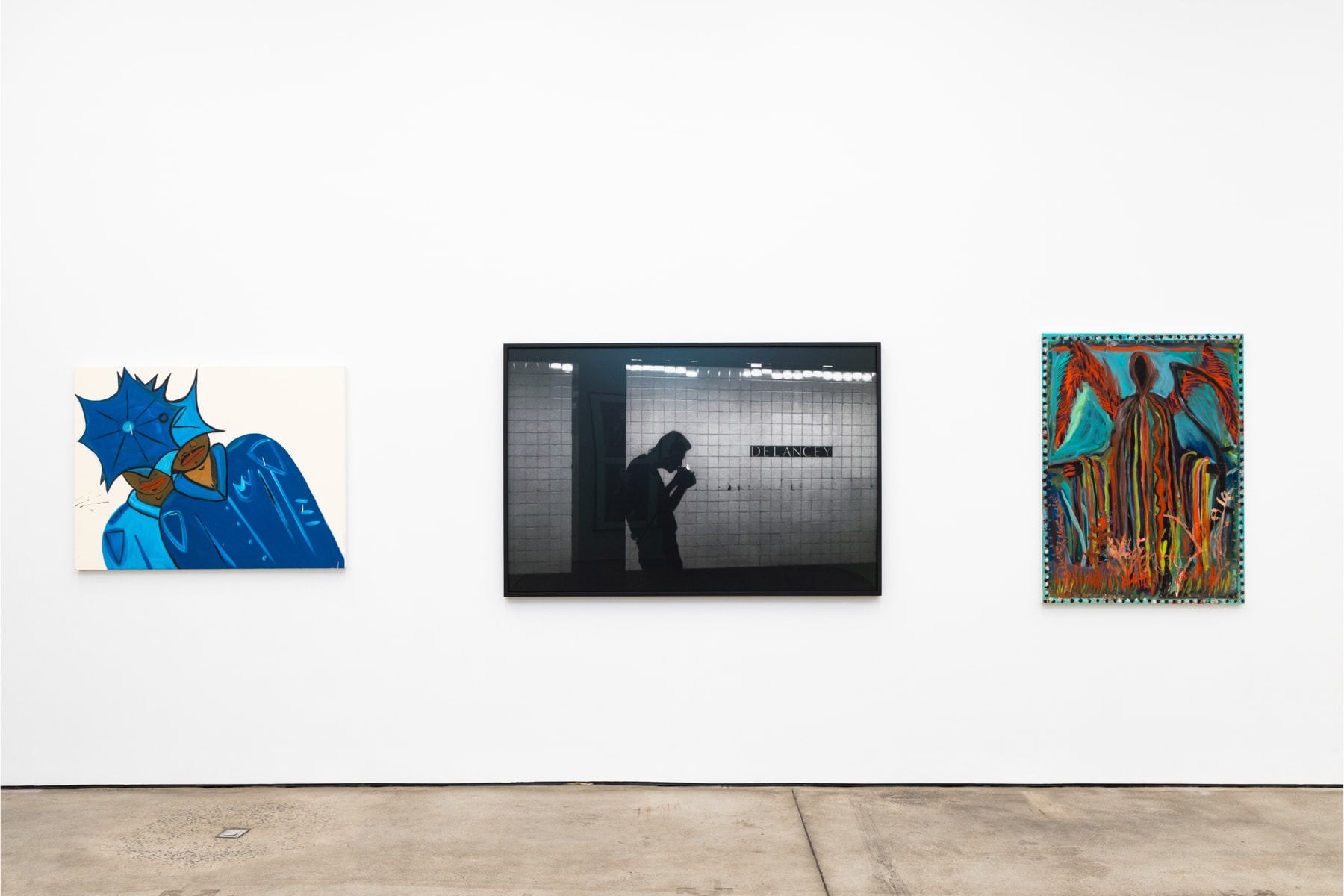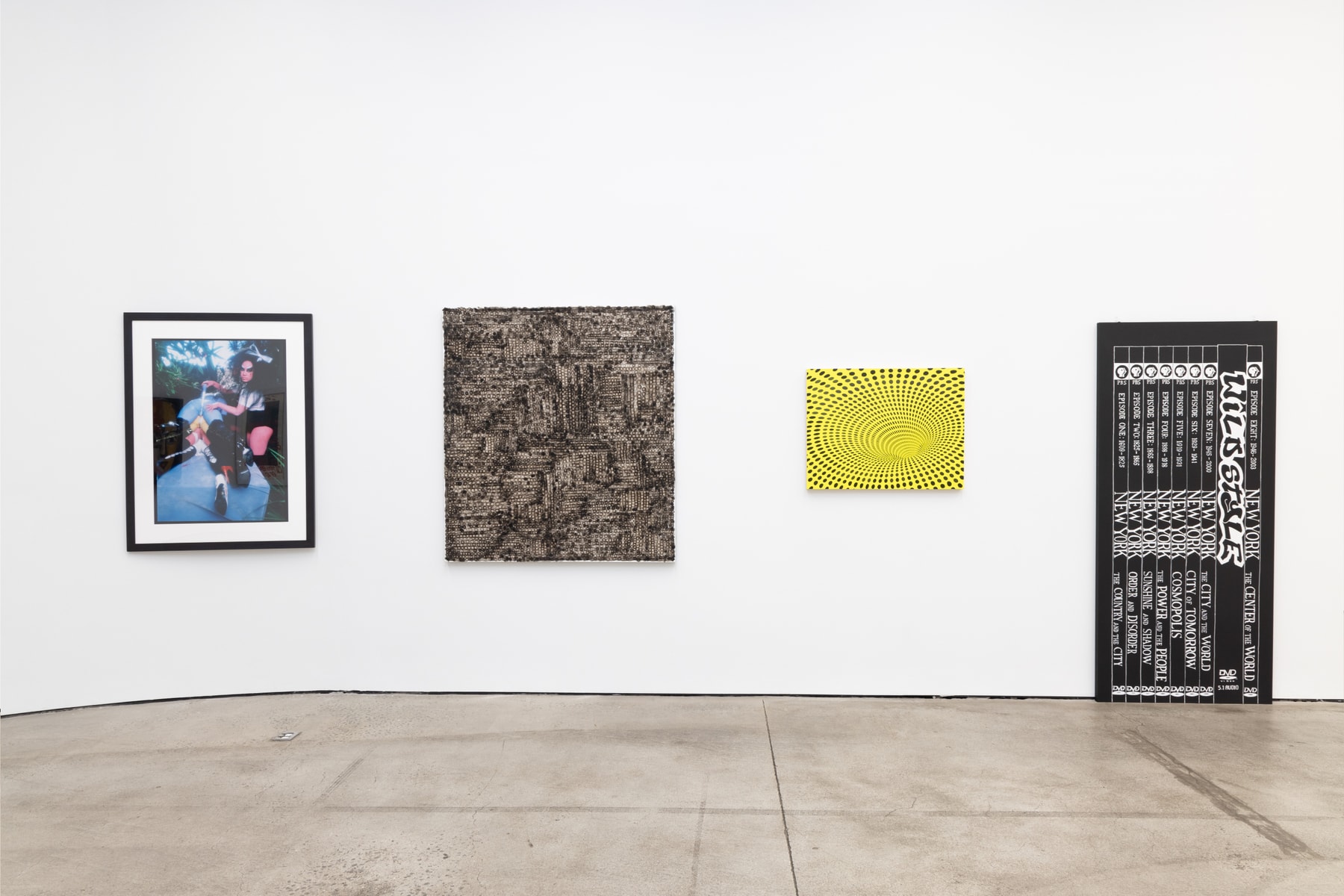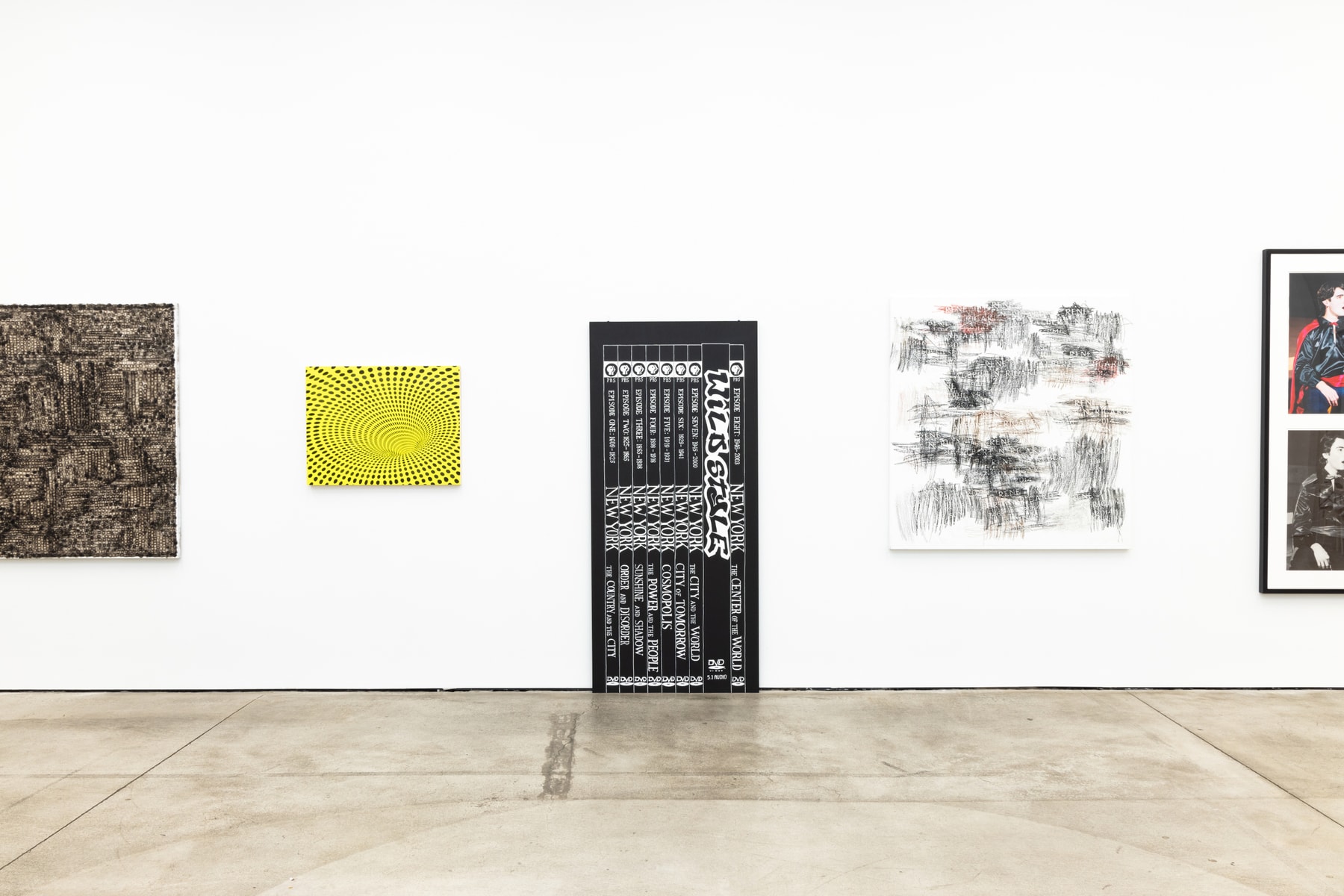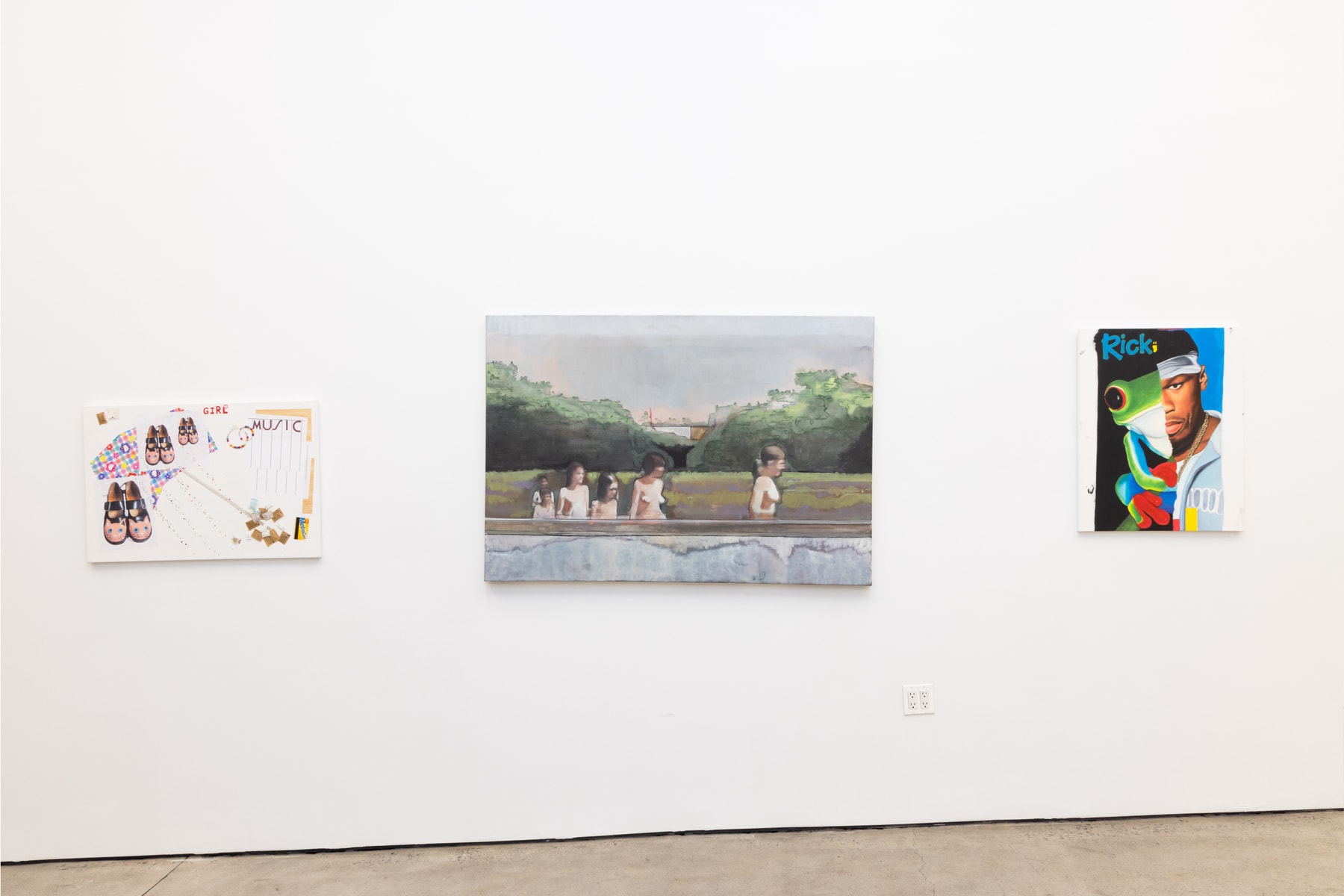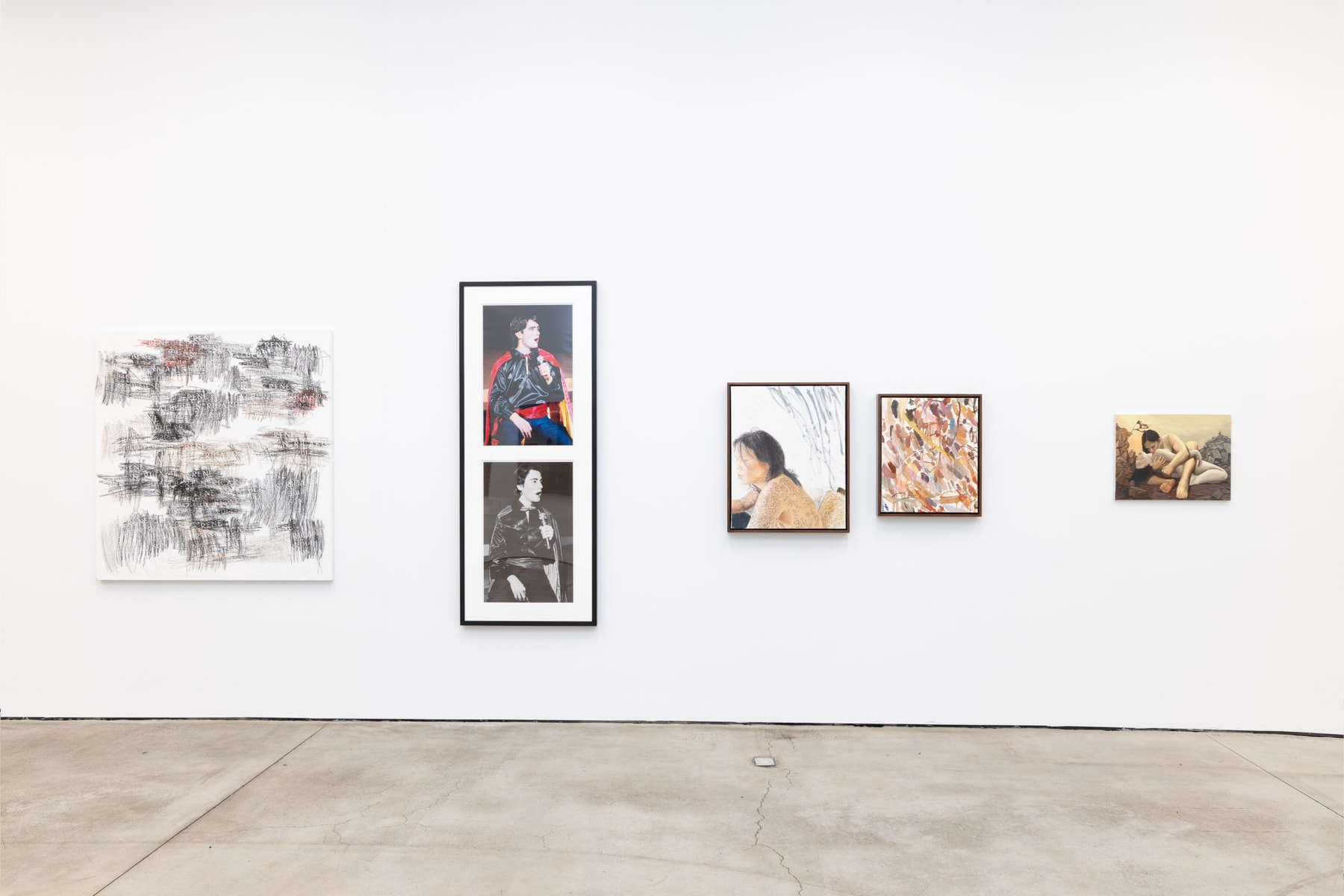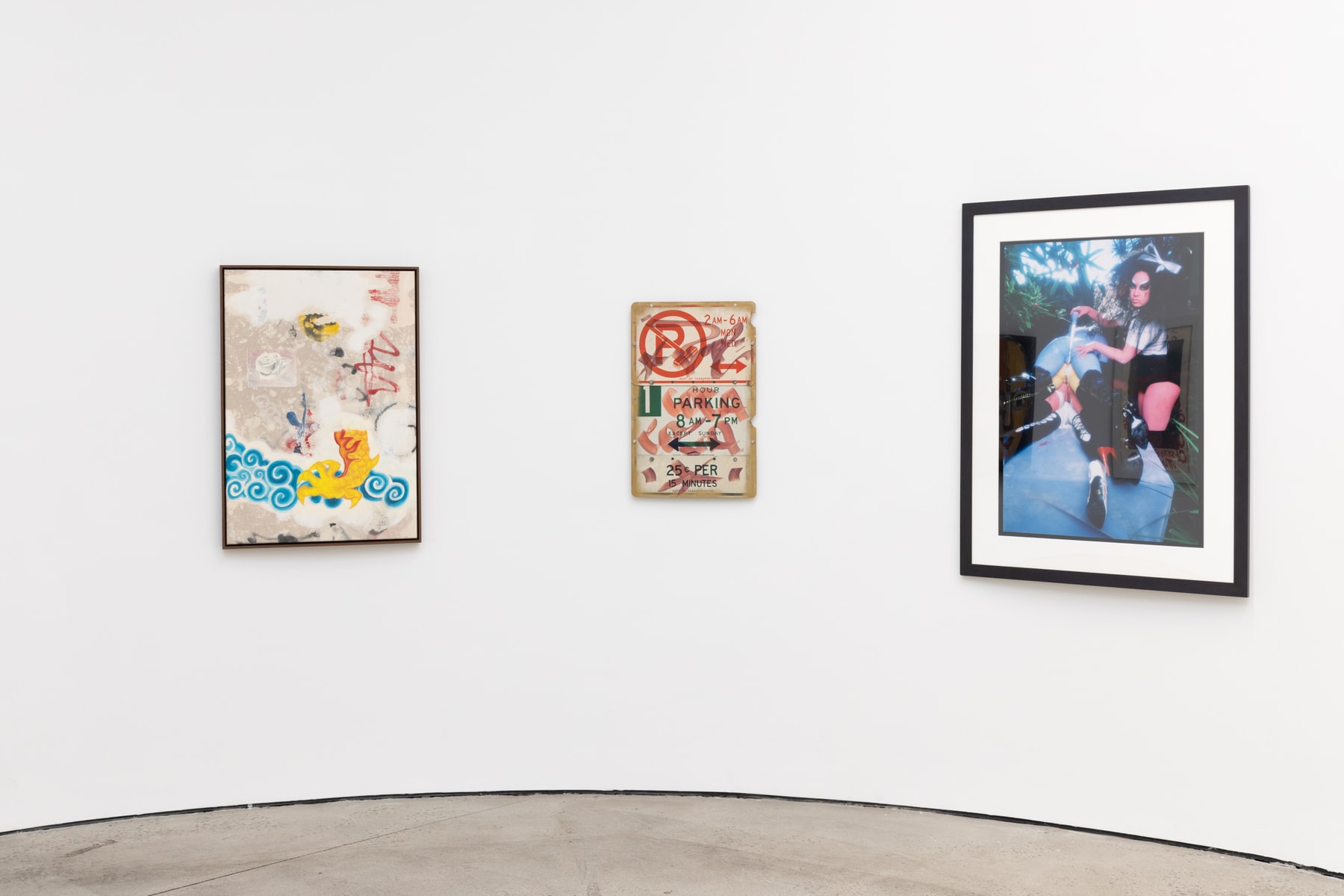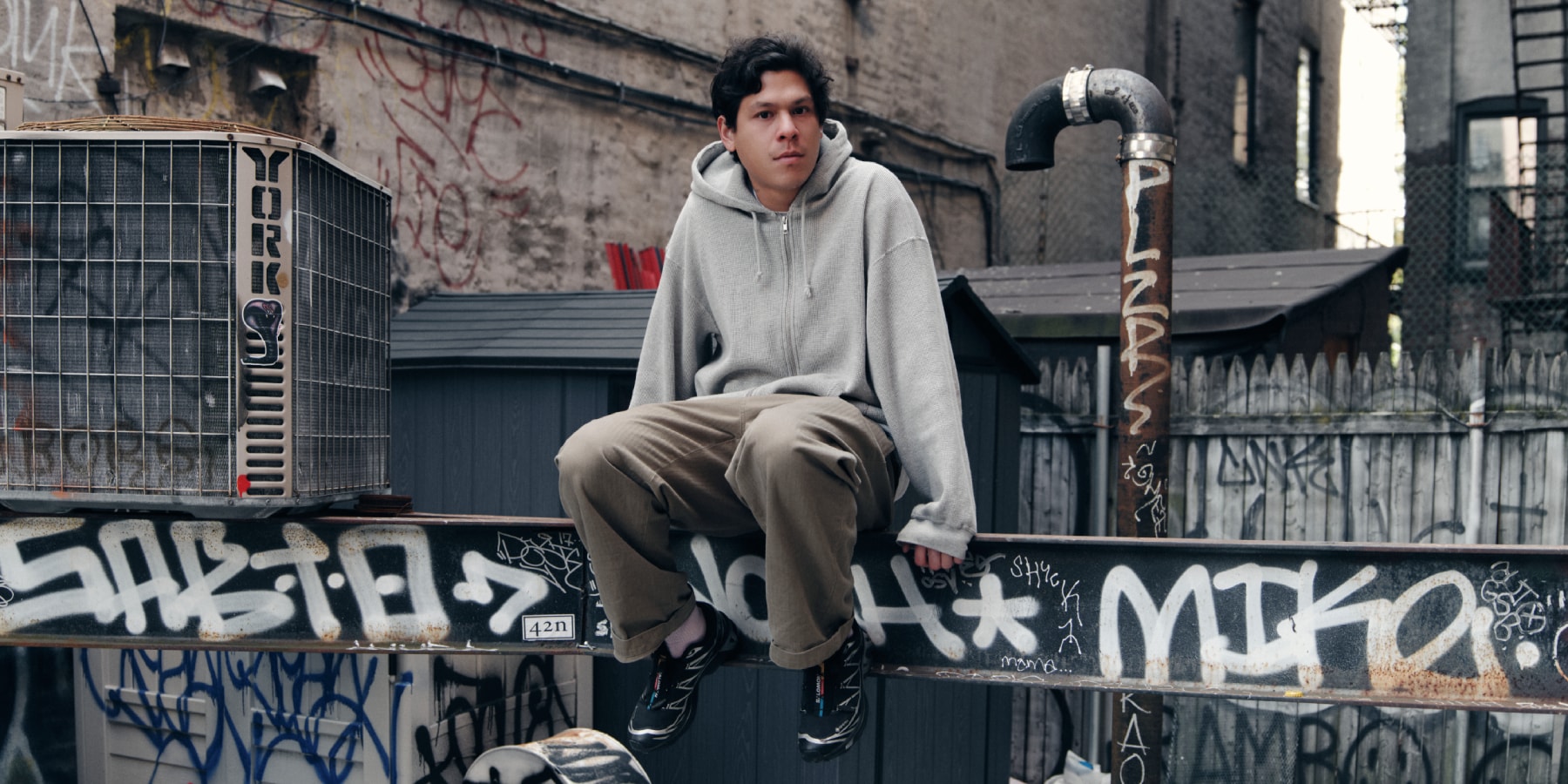
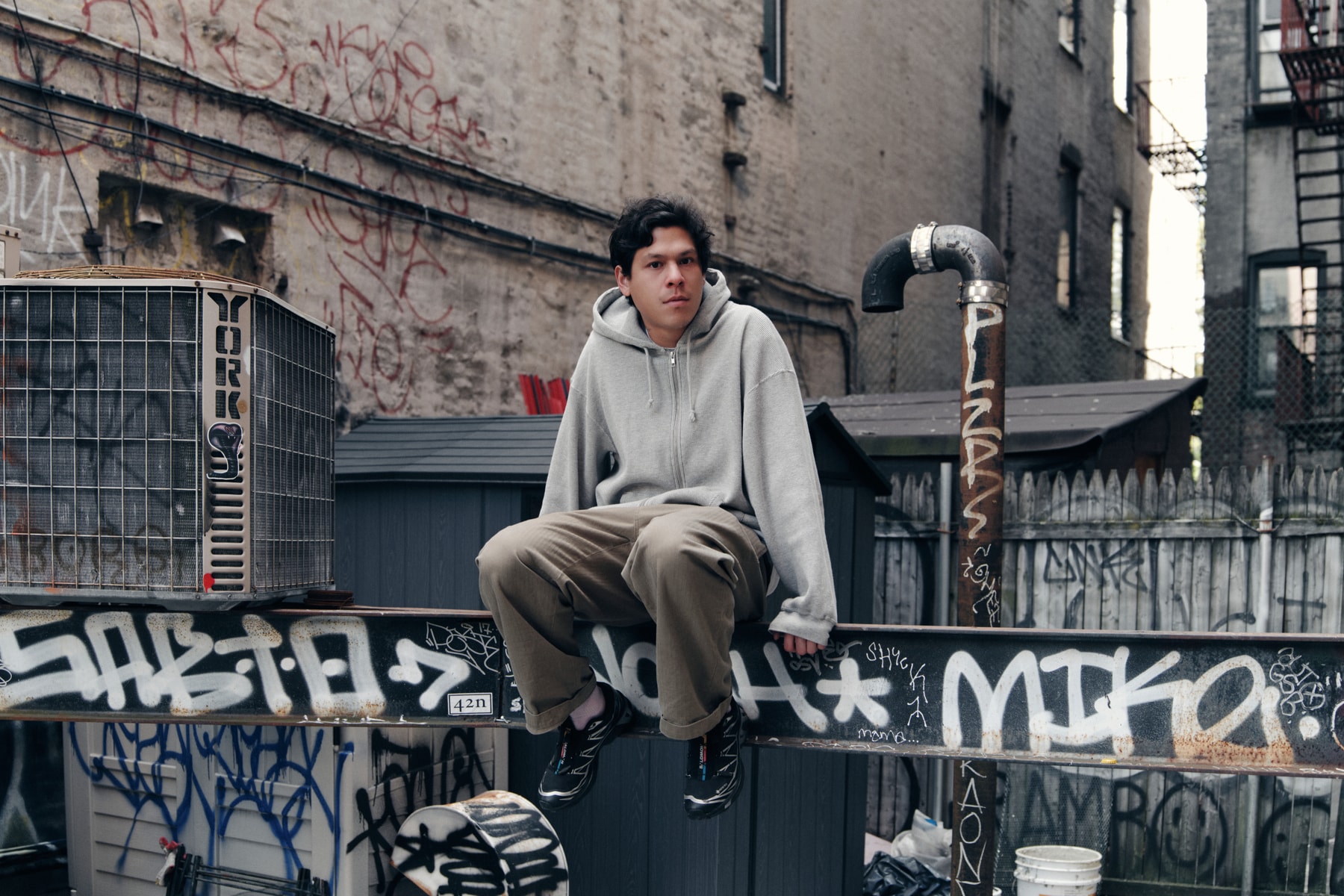
Hundreds gather on a Chinatown rooftop for the opening of Alix Vernet’s EDEN at Market Gallery. Staged in a former 9-by-15-foot storage shed, the gallery, perched above the bustle below, feels like a secret hidden in plain site, and even among the new class of shoebox galleries cropping up around the neighborhood, it distinguishes itself through the atmosphere it fosters. The space, housing Vernet’s crackled, spray paint delights, only fits a handful of visitors at a time, lending a more visceral intentionality to each encounter with the works. Outside, summer openings double as barbecues; in the winter, soups, a DIY favorite, simmer over the fire pit. On this night, you’ll find Adam Zhu, the man behind Market, tending the grill.
Sure, New York art regulars have often seen it all when it comes to shows in offbeat places, but few feel as intimate and up-close as Market; to get to the show, visitors have to cut through Zhu’s one-bedroom apartment. “Generally people are confused at first, and then when they go into the back area, it’s quite a scene,” he tells Hypeart. “The whole thing is part of the experience, right? I’m inviting you into my personal space.”
“The whole thing is part of the experience, right? I’m inviting you into my personal space.”
A fixture in the downtown set, Zhu is well-versed in his city’s art scene. He opened the gallery last fall, and has used it as a launchpad to spotlight his community — a “game changer,” as he calls it — all while keeping a tender, homegrown-sensibility. “I’m definitely one of those people when I’m asked what I do, I always stutter a bit,” he admits. At 29, he’s already got a handful of titles under his belt – artist, skater, curator, organizer, cultural consultant and on opening nights, chef. Now, “gallerist” joins the list.
Zhu’s multihyphenate streak can be traced back to his East Village roots, something he describes as “catching the tail end of a really great time,” the final years of a subcultural heyday. A native New Yorker, much of what he stands for, and is, can be credited to a teenagehood sculpted by the chaos and characters of lower Manhattan, and gaining this early sense of independence would prove formative to his future artistic endeavors.
“For me, skating is so integral to the way that I view things,” explains Zhu, once a regular, then employee and now a brand consultant at Supreme. “I don’t think many people cover as much ground as skateboarders do.” The community-centered outlook that drives much of his to his work today comes from bearing witness to the full spectrum of textures the city’s people and places have to offer, and the camaraderie shared between the skaters of Tompkins Square Park, a historic crossroads of punks, poets, artists and musicians. When the park’s beloved asphalt came under threat in 2019, Zhu played a prominent role in rallying skaters and neighbors to defend the space that had raised them.
“Rather than feeling displaced in your own city, do your part to create a space that feels true to yourself and your community,” he says. “I try not to be too pessimistic, although it’s hard at times. It’s a big reason why I started the gallery.”
“Rather than feeling displaced in your own city, do your part to create a space that feels true to yourself and your community…it’s a big reason why I started the gallery.”
For the last 10 years, he’s called the Chinatown one-bedroom home. Before becoming Market Gallery, the space lived many lives as an art studio, makeshift outdoor cinema, jazz practice room, Boiler Room venue, a crash pad for Shawn Powers. “Something about using it entirely for myself didn’t sit right with me,” Zhu explains, and in September 2023, the idea of turning it into a permanent gallery took hold. In just a “matter of months” over following summer, the humble plywood cube shaped up into an exhibition-ready showroom, thanks to contractor and inaugural featured artist, Andrew Kass.
Coming up on just a year old, Market has already made a name for itself, keeping on a steady refresh of presentations from New York’s most exciting emerging names. Tight quarters made anything more than a solo tricky, that is, until Jack Irv, another artist and acquaintance, secured a spot for the gallery’s first take on a big summer group show: 51 Mercer, formerly home to Virgil Abloh’s Em Pty Gallery.
By July, they’d opened the doors REVOLVE. What began as way to justify showcasing the single Rene Ricard they had on hand, the exhibition quickly spiraled into an intergenerational celebration of New York artists of the past, present and future, bridging the living, deceased, emerging and underground. With Supreme quick to jump on board, the show included the likes of Lorenzo Amos, Amanda Ba, Marcus Jahmal and Rachel Simon (who is set to make her solo debut at Market later this month) — beside a rather impressive lineup of legacy names, like Dash Snow, Rammellzee, Mike Kelley, Josh Smith, Maggie Lee and Aurel Schmidt.
“Just being the black sheep — or in my case, the yinyang sheep — I view the gallery as a DIY project, something outside the establishment.”
Drawing a crowd of over 1,000, spilling onto SoHo’s cobbled streets, REVOLVE marked a full-circle moment for organizers and exhibiting artists, Zhu, Kass and Irv, who hosted DIY parties and pop-ups as teenagers. “Being a part of that felt in the same spirit as what we’d done over the years, but just incredibly elevated” he describes. “It was definitely a perfect storm.”
Yet even after the dizzying buzz left by REVOLVE and Market at large, Zhu hesitates to lead an introduction with “gallerist” or “dealer” at the forefront. For him, the full scope of the gallery, and his stake within it, is something that stretches beyond the confines of a singular title. Whether it’s curating, making art, skating, hosting, cooking or lending a hand to support friends, each facet, he insists, are all just different sides of the same practice.
Zhu isn’t chasing the traditional white-cube storefront as an end goal. Rather, he’s playing to the gallery’s strength as the “communal creative space” it’s always been. All while, of course, flexing some curatorial muscles along the way. It’s an ethos concisely captured by the logo itself, a subtle nod to the hardcore band Minor Threat, emblazoned on the doors of his home and shed. “Just being the black sheep — or in my case, the yinyang sheep — I view the gallery as a DIY project, something outside the establishment.”
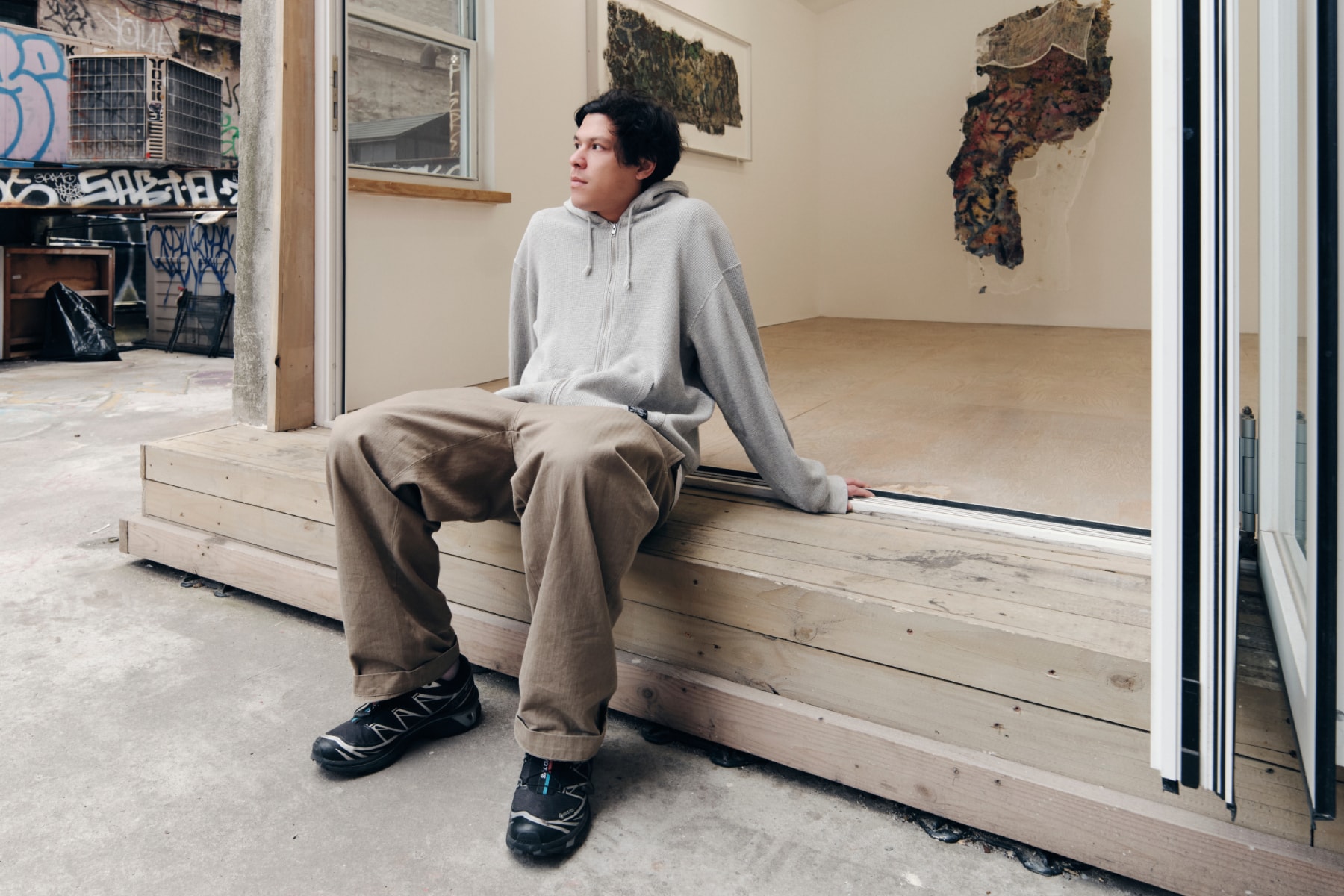
Amid a city where relentless development and commercial churn threatens the livelihood of its indie gems, Zhu sends a flare for the joy of co-creating. From the beginning, he’s kept his own community close to heart, and his friends, peers and contemporaries are placing that creative faith back into him. He hopes that Market can inspire others to build their own scenes and celebrate art, forge their own paths outside the straight and narrow pursuit of major gallery representation and make them feel like they’re a part of something, while sounding out new forms of self-expression along the way.
The stars appear to be aligning for Zhu, pointing to a promising, if unconventional, career path, the “biggest gift of all,” being the sheer thrill of doing what he loves. He suspects he’ll stage a solo show at the space one of these days, but for now he’s busy building momentum and riding out the highs; carving out his own corner of the art world, and most importantly, doing it all on his own terms.
Photography by Nayquan Shuler. Installation imagery courtesy of the artists and Market Gallery for Hypeart.













